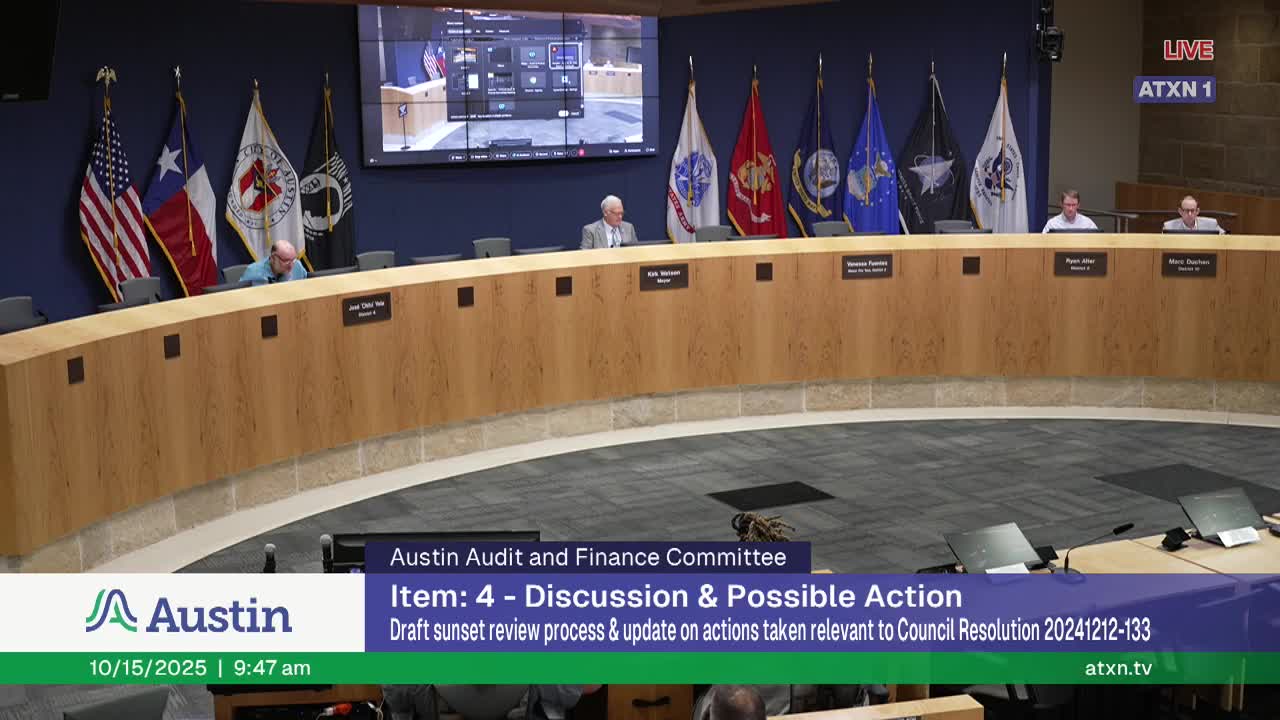City clerk outlines pilot sunset-review process, proposes five-year cycle for boards and commissions
Get AI-powered insights, summaries, and transcripts
Subscribe
Summary
A pilot review of four boards and commissions found the process workable but staff-intensive; the Office of the City Clerk proposed review teams with subject-matter experts, a longer annual timeline starting in January and a five-year review cycle, and recommended marking bodies inactive after two years without meetings.
Assistant City Clerk Stephanie Hall and an assistant city manager presented a pilot sunset-review process to the Audit and Finance Committee on Oct. 15, describing a seven-step framework and lessons from a two-and-a-half-month pilot.
Hall said the pilot evaluated four bodies'the Airport Advisory Commission, the Technology Commission, the Economic Prosperity Commission and the MBEW and Small Business Enterprise Procurement activity advisory committee'and produced individual reports that include legal review, self-evaluations, public input and an initial recommendation. "We first identified the bodies...we had the boards and commissions complete a self evaluation...we included our initial recommendation," Hall said.
Assistant City Manager Jess summarized what the pilot revealed: the compressed two-and-a-half-month timeline made it difficult for boards to complete self-assessments and limited public engagement; compiling the reports required substantial staff time; and subject-matter expertise is needed to evaluate whether a body's mandate remains relevant. Jess said review teams of city staff and council staff with policy expertise should evaluate reports and produce clearer recommendations.
The presenters proposed an annual review cycle begun in January, giving boards until July to complete self-evaluations and public outreach, with report compilation in August and September and review-team recommendations delivered in Q4. They proposed grouping boards by policy area and running a five-year rotation so a body reviewed in year one would not be reviewed again until year six.
Council questions highlighted resource concerns. Councilman Burdickin asked how much staff time the pilot required; Hall said four full-time clerk's office staff worked on the reports for about three and a half weeks, with additional law-department time. The clerk's office plans to propose a staffing model and return with a recommended schedule and prioritization of which boards to review first.
The presentation also addressed inactive bodies listed in the resolution's appendix. Hall said clerks' office checks with the law department found many bodies had not met for at least two years and recommended marking those bodies as inactive on the website while retaining archival records. Two entities had formal dissolution actions; the remainder showed no recent meetings.
There was no committee vote recorded on the framework; presenters said they will return with staffing estimates, a proposed list of bodies to include and a recommended schedule.
